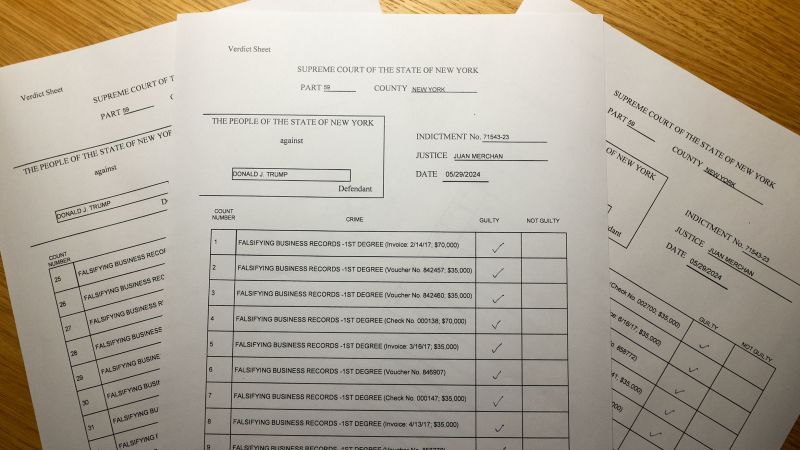Former President Donald Trump was convicted this week of 34 counts of felony business fraud related to hush money payments to Stormy Daniels before the 2016 election. Trump has been indicted by Manhattan District Attorney Alvin Bragg and is set to be sentenced on July 11. Despite the guilty verdict, Trump has vowed to appeal and this conviction does not prevent him from continuing his presidential campaign or serving as President if elected.
The indictment against Trump focused on illegal activities surrounding the hush money payments, alleging that the payments were part of a conspiracy to undermine the integrity of the 2016 election. While hush money payments themselves are not illegal, the charges were specifically tied to alleged false entries in the financial records of the Trump Organization. Trump maintains that the payments made to Michael Cohen were legal expenses.
Key witnesses and evidence in the case included physical evidence such as checks and ledgers, as well as testimony from David Pecker and Stormy Daniels. Pecker testified that his company collaborated with Cohen to suppress damaging stories about Trump during the election. Daniels provided explicit testimony about her encounter with Trump in 2006. Michael Cohen also testified that Trump was aware and approved of the payments to Daniels as legal services.
Judge Juan Merchan placed Trump under a gag order early on in the trial, which Trump repeatedly violated on social media. The gag order prohibited him from making statements about witnesses, jurors, prosecutors, and court staff. Trump was fined for these violations and continued to criticize the gag order throughout the trial and after the guilty verdict.
Trump is facing Class E felony charges, the lowest level in New York law, and as a first-time offender, he is unlikely to face prison time. However, the sentencing will be determined by Judge Merchan on July 11. Trump has announced plans to appeal the conviction, and the appeals process could take several months or longer. Despite the legal challenges, Trump remains eligible to run for president based on constitutional criteria.
While Trump still faces legal challenges in other cases, including federal election subversion charges and a Georgia election interference case, he has been successful in delaying these trials with legal filings and appeals. The judge overseeing his classified documents case has postponed the trial indefinitely, and the Georgia case is in legal limbo. CNN reporters have received a flood of questions from readers about Trump’s legal status, which have been addressed in detail in their reporting.


